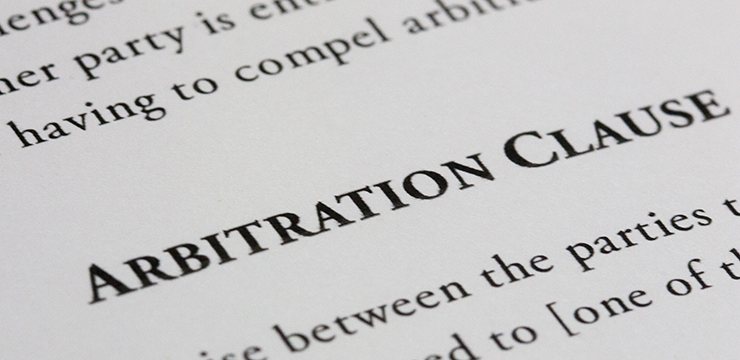Arbitration
What is Arbitration
Arbitration is a form of alternative dispute resolution in which the two parties agree not to take their dispute to court, but instead to resolve the dispute by hiring an arbitrator to hear both sides. Arbitration is used in labor disputes, business and consumer disputes, and family law matters. Arbitration as a process is very different from the process of litigation (trying cases in court), for business disputes. Most people are probably familiar with the litigation process, but they may not be familiar with arbitration.
Differences Between Arbitration and Litigation
Litigation is a very old process that involves determining issues through a court. In this case, we're talking about civil litigation - disputes between two parties (as opposed to criminal litigation, which involves the state against a law-breaker).
Arbitration, on the other hand, involves two parties in a dispute who agree to work with a neutral third party in an attempt to resolve the dispute. In arbitration, there may be one or more arbitrators who hear both sides of the issue and who make a decision.
Here are some differences between litigation and arbitration:
Public/Private, Formality
Speed of Process
Cost of the Process
Costs for litigation include attorney fees and court costs, which can be very high.
Selection of Arbitrator
Use of Attorneys
Evidence Allowed
Availability of Appeal
Litigation allows multiple appeals at various levels.
Arbitration clauses
Most contracts assume that any disagreements will be dealt with in the litigation process. The contract will list the jurisdiction in which the case is to be heard. Many contracts in 21st century have a mandatory arbitration clause, which states that all disputes must be handled by arbitration. In most of these contracts, litigation is specifically ruled out as a possibility.
Arbitration has experienced great growth internationally over the past years with parties from different countries resolving disputes arising from international transactions. Regarding arbitrations conducted abroad, execution of a decision res judicata is ensured by the provisions of art. 903-906 of the Hellenic Code of Civil Procedure and the international conventions ratified by Greece, such as the 1958 New York Convention, Legislative decree 4220/61 and the Law 2735/1999 on International Commercial Arbitration.
In conclusion, arbitration ensures settlement of trade disputes fast with decisions announced within a very short time (usually takes 3 months approximately) after the hearing, at a fraction of the cost of litigation. The amount of the total fee for arbitrators and referees is calculated as a percentage of the value of the claim/dispute in accordance with the special table of the art. 882 of the Code of Civil Procedure.


